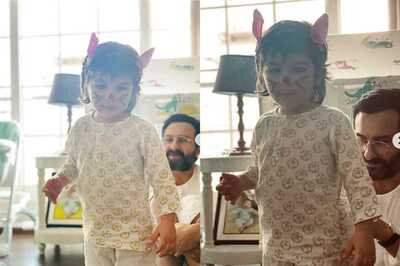
views
Filmmaker Robert Greene knows well the burden of responsibility in making a documentary. Its not just to the film itself, the audience or the storytelling. Its the responsibility to the subjects in front of the camera. And in Procession the subjects were six men who decades ago were sexually abused by Roman Catholic priests and clergy.
I dont know that documentaries change the world, but I do know that they change the lives of the people on screen, Greene said. This is my seventh and I know how it can affect positively and negatively. If you have that knowledge, you have to build on it. You have to do something with that. And thats what this project is.
There were a lot of ideas that had been circling in Greenes head by the time he saw a press conference on the news with four survivors and their lawyer in Kansas City that would ultimately inspire the project. A lifetime student of documentary, Greene was thinking about our evolving relationship with cameras, the point of making films at all anymore and whether or not they could actually be used to help people. Hed recently read the book The Body Keeps the Score and was introduced to the idea of drama therapy.
So, Greene decided to call the lawyer he saw on television, Rebecca Randles, to start a conversation about exploring their story through drama therapy.
It wasnt about going to the guys and being like, ‘Tell me how I can help you, or something ridiculous like that,’ Greene said. It was, Rebecca, tell us why this is not a good idea. But she didnt say that.
It began a three-year process in which survivors Joe Eldred, Mike Foreman, Ed Gavagan, Dan Laurine, Michael Sandridge and Tom Viviano came together and with the help of drama therapist Monica Phinney created and performed scenes inspired by their memories. Greene was prepared to stop at any moment, if it got too hard for the men, or seemed to be doing more harm than good. But they always found good reasons to continue.
Since its premiere at the Telluride Film Festival, Procession” has received near-universal acclaim, played to many standing ovations and has even been shortlisted for a best documentary Oscar nomination. And the response since it hit Netflix has been overwhelming for everyone involved, with family members, friends, strangers and survivors all reaching out to express support or tell their stories.
The guys have even had to modulate it a little bit, Greene said. This is a film that I genuinely do not think could have been made five years ago. I think what were experiencing with all of the reach out from other survivors whove seen this film is just this idea of Oh my God, you can hold it like this. These are six very different men, but theyre men, you know? And theyre tearful and theyre holding each other and theyre expressing love and brotherhood in a way that is unusual. And I think its very inspiring.
Early on in the process, Greene sat around in a circle with the men and promised that they would work hard to find the right audience. The point of doing these exercises on camera was to help other survivors after all.
So much of these guys lives are dictated by shame. It can be debilitating, Greene said. So to see the guys walking out in front of the Metrograph Theater and then a full crowd stands up and gives them a standing ovation? I mean, how many times in my life have I been cynical about the idea of a standing ovation after a documentary? Many, many times. And yet we embrace it instead of being cynical about it. We embrace the beauty of it and the love. That was transformative for those guys to be validated and say, Look, you did good and well and what you are is not your worst moment. What you are is not what happened to you. You were not damaged goods. You are not permanently destroyed. You have turned this awful, awful poison into medicine.
We promised them that we would try our hardest and then that kind of validation, Greene added. I am a deeply flawed human being. But I did not let them down in this regard. We didnt let them down.
–
Follow AP Film Writer Lindsey Bahr on Twitter: www.twitter.com/ldbahr
Disclaimer: This post has been auto-published from an agency feed without any modifications to the text and has not been reviewed by an editor
Read all the Latest News here


















Comments
0 comment